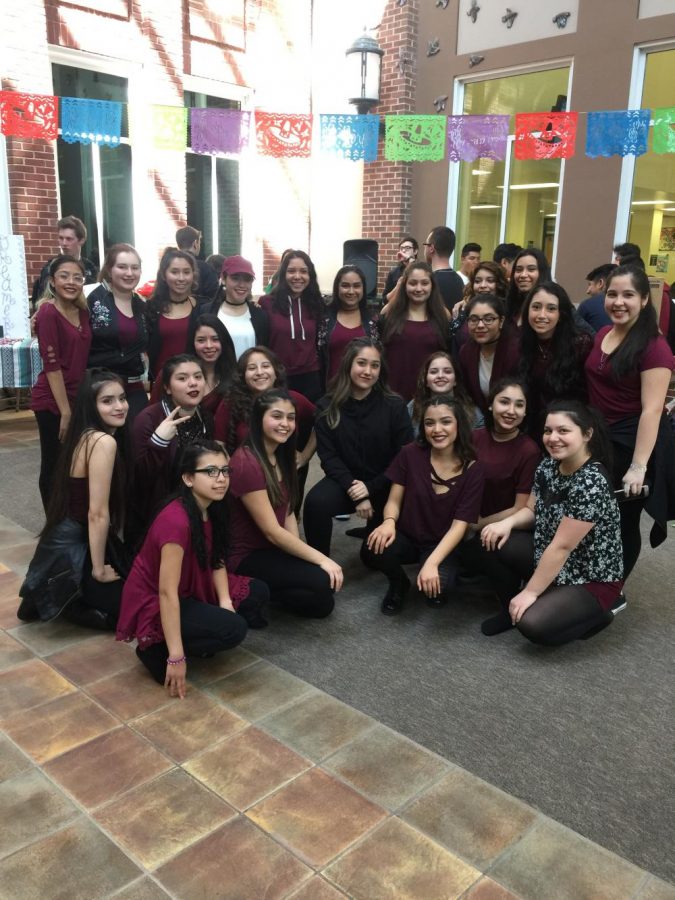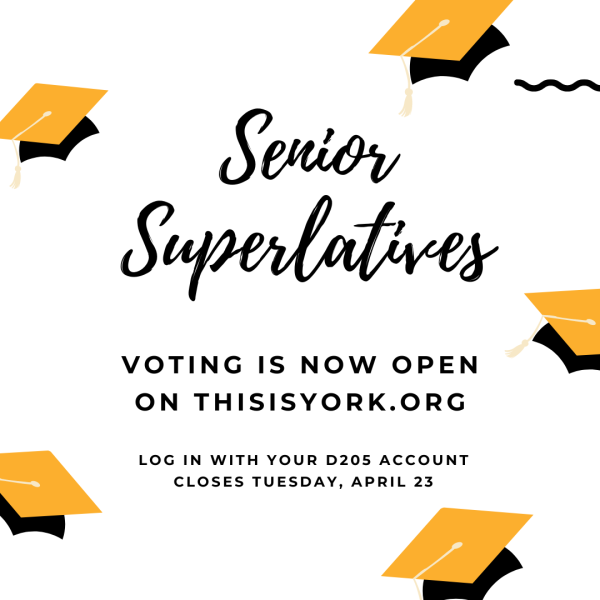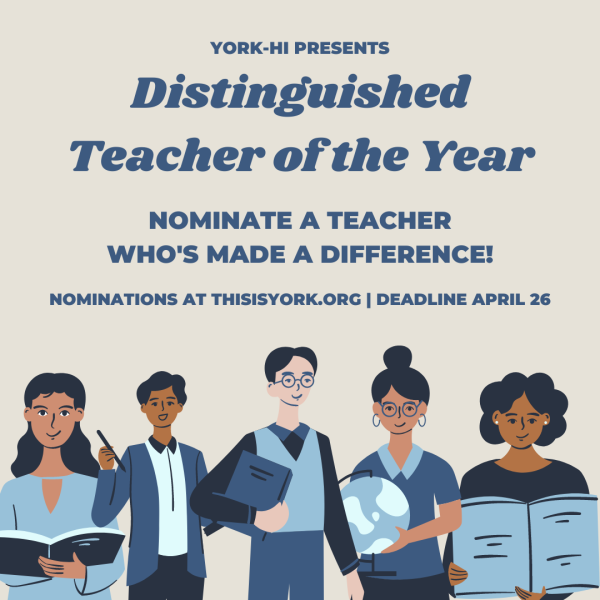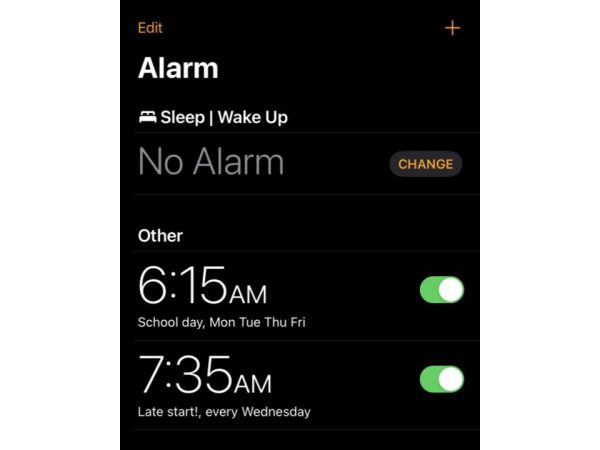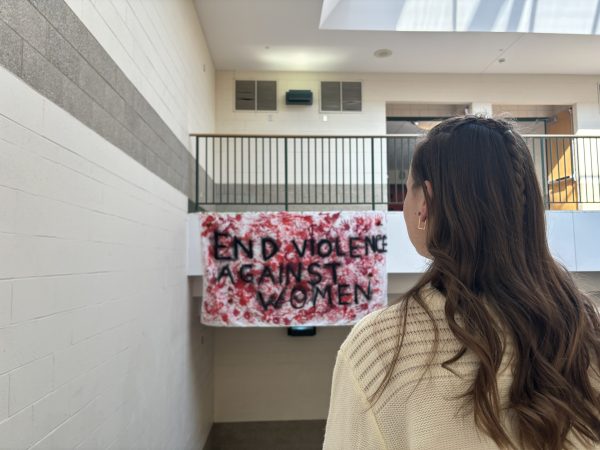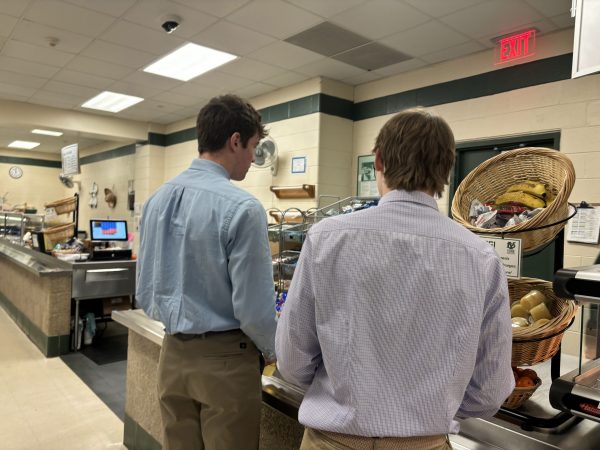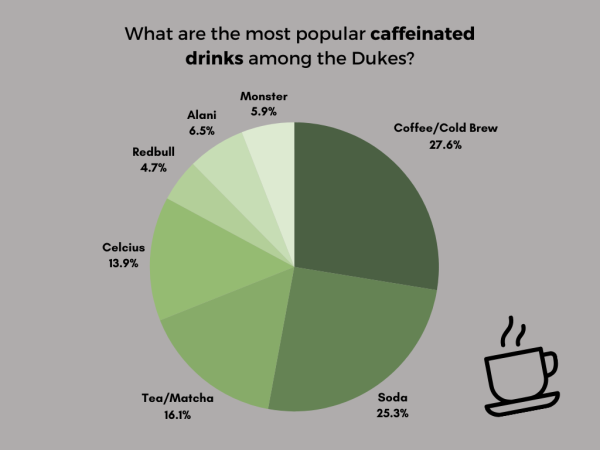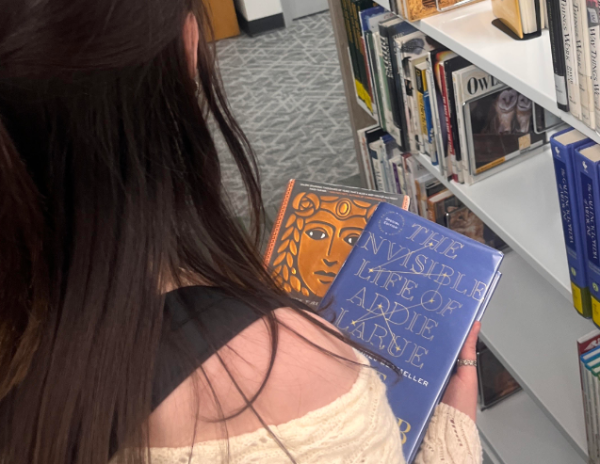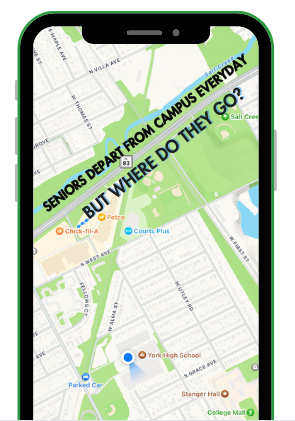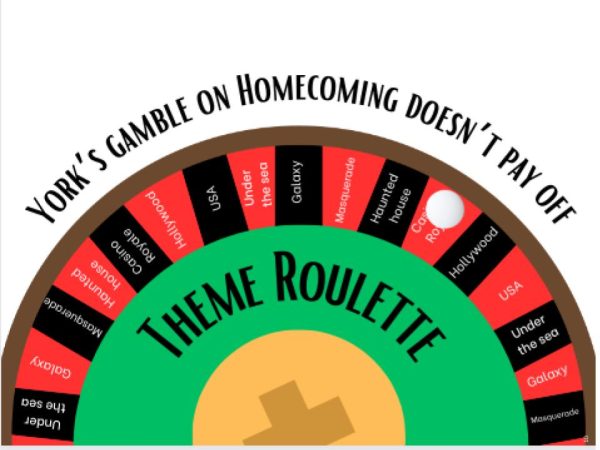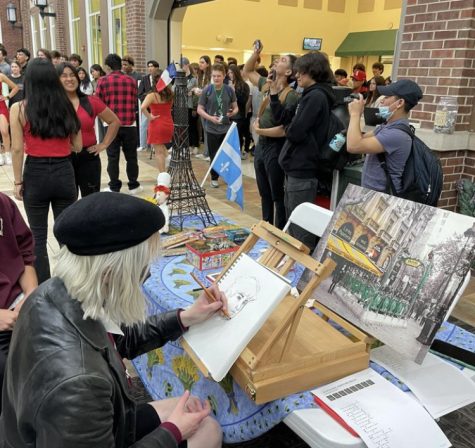Are the Dreams of DACA at Stake?
Photo Courtesy of Diane Oliveros
Latina Dreamers celebrating International Fest in Spring, 2017.
Who would have thought that the votes that were counted on November 8th would determine the future of hundreds of thousands of young people in this country? These young people — your classmates — have friends and family members whose dreams of opportunity have been crushed by the Trump administration’s recent decision to roll back the DACA (Deferred Action for Childhood Arrivals) program.
In December of 2012, then-president Barack Obama set up the DACA program to protect the children of parents who entered the United States illegally and do not have any documentation. These children would be protected from I.C.E. (U.S. Immigration and Customs Enforcement) and deportation back to their home country. On September 5, 2017, Attorney General Jeff Sessions announced that the DACA program would be rescinded after a six month delay for Congress to figure out what to do with the 800,000 young people who are recipients of the program.
“I am here today to announce that the program known as DACA that was effectuated under the Obama Administration is being rescinded,” said Sessions. “The DACA program was implemented in 2012 and essentially provided a legal status for recipients for a renewable two-year term, work authorization, and other benefits (including participation in the social security program) to 800,000 mostly-adult illegal aliens.”
In a study written by Gustavo López and Jens Manuel Krogstad on www.pewresearch.org, there is an estimated 5% of DACA recipients living in the state of Illinois, about 40,000, to be exact, with some of those young people living in the Chicago area.
These people aren’t just a number, though. These kids could be your neighbors or coworkers. To put this into perspective, York’s own Bilingual Counselor/EL Coordinator, Diane Oliveros, gave an approximate number of York students who may be affected by this program. [She] revealed that there are no York students who are recipients of this program, but some do have relatives who are.
“Now, we do have some students here who do have older siblings that do qualify for DACA or have DACA,” said Oliveros. “Those younger siblings who are here right now do not have it.”
Oliveros then proceeded to supply more information on this matter, but regarding those who are undocumented and not a current recipient of DACA.
“When it comes to undocumented… I would estimate 70 students… which is a really big number just because, you know, these are all teenagers and young adolescents,” said Oliveros.
A few students who are in Latina Dreamers — a club dedicated towards working with goals for the future of and embracing Latin culture, gave their insight on the situation regarding the removal of the DACA program.
“I think [Trump] made it because he wanted to get the American people more involved in the jobs because he was saying that the immigrants are taking away jobs from the American people,” said Senior Celeste Avila, a dedicated member of Latina Dreamers. “I think that’s false because the jobs that [immigrants] do are what people wouldn’t want to do.”
While Avila spoke about jobs that immigrants take up, Juliana Suarez spoke about the security standard for our country when she states:
“I know he has a problem with illegal immigrants, and I feel that he knows these people are here illegally, so he wants to rid the country of them. I think he is looking out for the safety of the country, whether people agree with him or not.” Said Suarez, another loyal member of Latina Dreamers
The students had similar viewpoints for the most part, but a couple of them provided more explicit answers.
“I wasn’t affected myself by the decision, but emotionally, I was really… destroyed. It was really hard understand how many people were losing everything they worked for,” said Paula Gonzales-Guzman. “It made it seem like no matter how hard you try… you’re not ever going to succeed. Even though you’ve worked so hard and you’ve done anything… everything right, it just doesn’t matter.”
When asked about how safe she feels in Elmhurst, Gonzales-Guzman answered how living a life here is far more difficult than others may perceive when she said,
“I try to feel safe, but if I’m being honest, I don’t even feel safe anywhere. Just because I’m Mexican, I don’t even feel welcome anywhere here. I’m so different from these people… it’s just being proven over and over again by this administration how hard it is for someone like me, for example, and the girls from Latina Dreamers to just be able to feel like you belong here.”
One student, Abby Corral-Mendoza, shared how the decision impacts her family.
“Yeah, my sister.” Corral-Mendoza answered, when asked if she knew anyone who is a current recipient of DACA. “Everyone sees immigrants as a negative thing… like criminals. But all we actually wanted to do was create a better future not only for ourselves, but for our families. [The decision] hit us hard because it’s personal. I was scared not only for [my sister] but for her son, because her son was born here and she wasn’t, so it hits really hard.”
These students are not the number that appears on your phone screen or on your Facebook timeline. They’re the kids you see in the hallway everyday or maybe you sit next to one of them in your class. No matter your politics, no matter your beliefs, there is no denying that destroying the futures of hundreds of thousands of young people who were brought here for a better life is not an ethical method.
“To me, I just see it as completely unfair to kick out all these minors who can’t fend for themselves; they need the help of other people,” Oliveros said. “That’s the way I thought America was supposed to be, to help those people.”
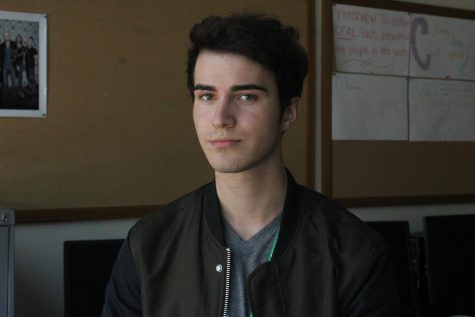
Nate Swanson is a senior at York, and this is his first year on staff. He's also a part of Mirrors Magazine and Fine Arts Week Committee. When he's not...


